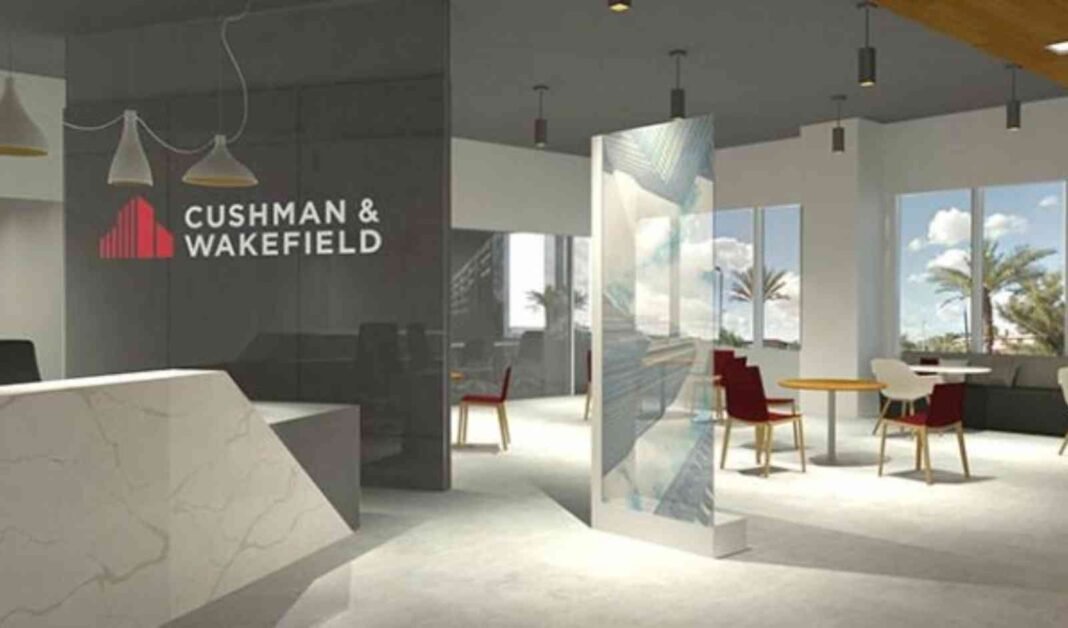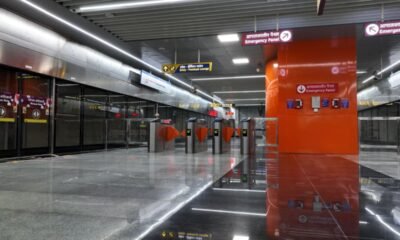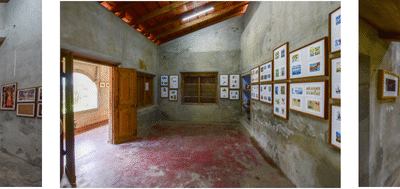News
Mumbai Returns to Pre-Pandemic Investment Levels, Surpasses $1 Billion 4th Consecutive Year: Cushman & Wakefield

Gurugram, November 11, 2025: Institutional investments in Mumbai’s real estate market crossed $1.2 billion in the first nine months of 2025, making this the fourth consecutive year the city has surpassed the billion-dollar mark, according to Cushman & Wakefield’s India Capital Markets Q3 2025 report. This performance signals Mumbai’s strong recovery and return to pre-pandemic investment levels, reinforcing its position as India’s most attractive gateway market for global and domestic capital.
At the national level, institutional investment inflows (across private equity and REITs) reached $4.7 billion year-to-date, underscoring continued investor confidence in India’s real estate story. The sector is well on track to close the year with around $6–6.5 billion, making 2025 potentially the second-best year on record for institutional investments in commercial real estate.
Domestic institutional participation has grown significantly over the past few years, now accounting for 48 per cent of inflows between January and September – up from a smaller share previously. Foreign investors contributed the remaining 52 per cent. This structural shift has helped offset volatility in cross-border capital flows and strengthened the market’s stability. Office assets remain the dominant choice for investors, accounting for 35 per cent of YTD inflows, followed by residential (26 per cent), retail (12 per cent), and logistics & industrial (9 per cent).

Somy Thomas, Executive Managing Director, Capital Markets, said, “India’s real estate investment landscape continues to demonstrate remarkable resilience and depth. Even amid global uncertainty, institutional capital has found stability in India’s strong economic fundamentals, robust domestic demand, and credible governance frameworks. The growing participation of domestic investors, who now contribute the majority share of quarterly inflows, underscores the market’s maturity and confidence in India’s long-term growth story.”
Foreign capital accounted for two-thirds (67 per cent) of Mumbai’s inflows at $797.7 million, led by investors from the United States ($500 million) and Japan ($297 million) — signalling strong confidence in the city’s fundamentals even as global capital flows remain selective. Domestic investors contributed the remaining $398 million, further diversifying the capital base.
Institutional interest in Mumbai extended across asset classes, reflecting the city’s increasingly diversified real estate ecosystem. The residential segment emerged as the primary recipient, attracting $377.6 million inflows, largely driven by redevelopment projects. The office sector followed closely with $339.71 million, benefiting from continued occupier resilience and renewed leasing activity. The logistics and industrial segment received $269.3 million, underscoring the sector’s emergence as an alternative institutional play. Meanwhile, mixed-use commercial projects (including office, hospitality and projects) saw inflows of $155 million and data centers attracted $54.6 million, highlighting the widening investor appetite beyond traditional asset classes.
Mumbai’s sustained investment run is closely tied to its ongoing infrastructure transformation. Landmark projects such as the Mumbai Trans Harbour Link (Atal Setu), Mumbai Coastal Road, Metro network expansion, and the upcoming Navi Mumbai International Airport are reshaping connectivity and urban mobility, enhancing the city’s attractiveness as an investment destination.
This large-scale infrastructure spend has not only unlocked new micro-markets but also strengthened investor conviction in the city’s long-term growth narrative.

 News2 weeks ago
News2 weeks agoInfrastructure Automation Company Enlite Launches World’s First Patented Edge Controller for Intelligent Infrastructure

 News2 weeks ago
News2 weeks agoIshara Art Foundation to Present Group Exhibition ‘Amphibian Aesthetics’ at Ishara House in Kochi

 News2 weeks ago
News2 weeks agoGodrej Properties Crosses FY26 Annual Business Development Guidance with Acquisition of 75-acre land parcel in Nagpur

 News3 weeks ago
News3 weeks agoGurugram Premium Segment Drives Projected Rs 6.65 Lakh Crore Market: ANAROCK

 News2 weeks ago
News2 weeks agoReal Estate Investment Momentum in APAC, India to Hold Steady Through 2026: Colliers’ Survey Insights

 News2 weeks ago
News2 weeks agoSumadhura Group Unveils Sustainable Urban Roadway in East Bengaluru Designed to Serve over 5,000 Families

 News2 weeks ago
News2 weeks agoK2 Infragen Delivers Robust H1 with 76.5% Revenue Growth, 70% Profit Jump

 News3 weeks ago
News3 weeks agoGurugram’s Growth Corridors: Micro-Markets Powering the City’s Real Estate Future



























